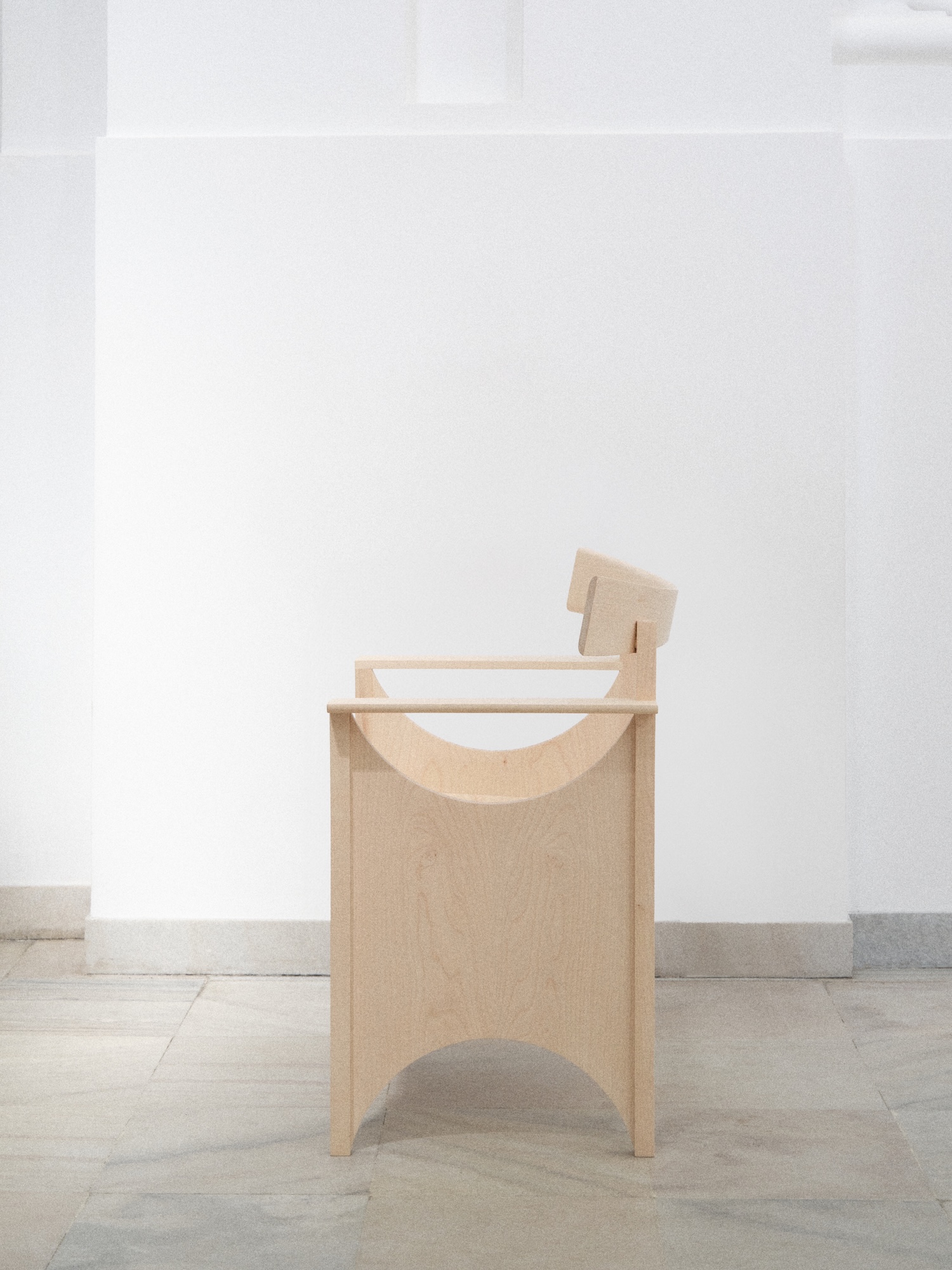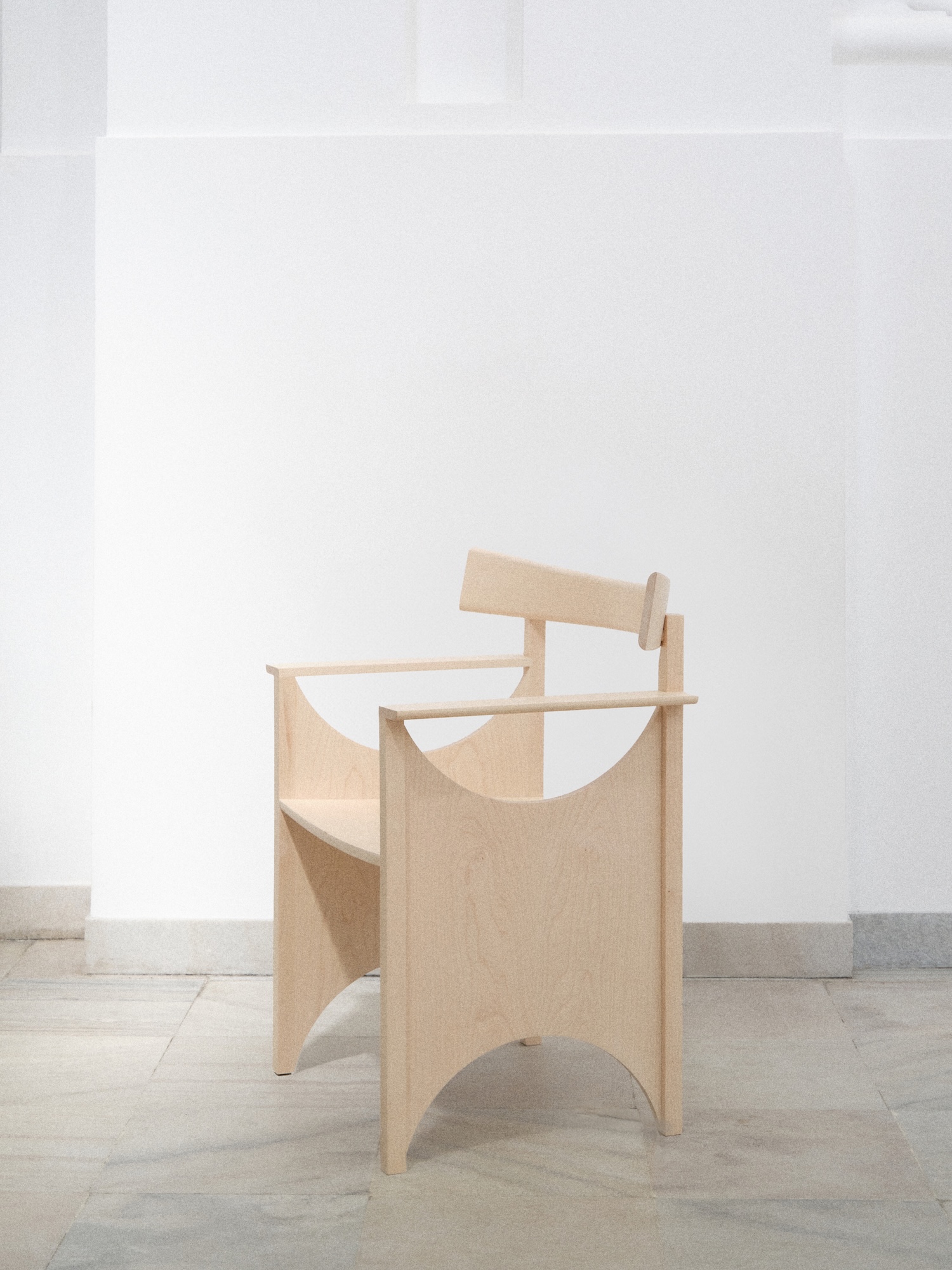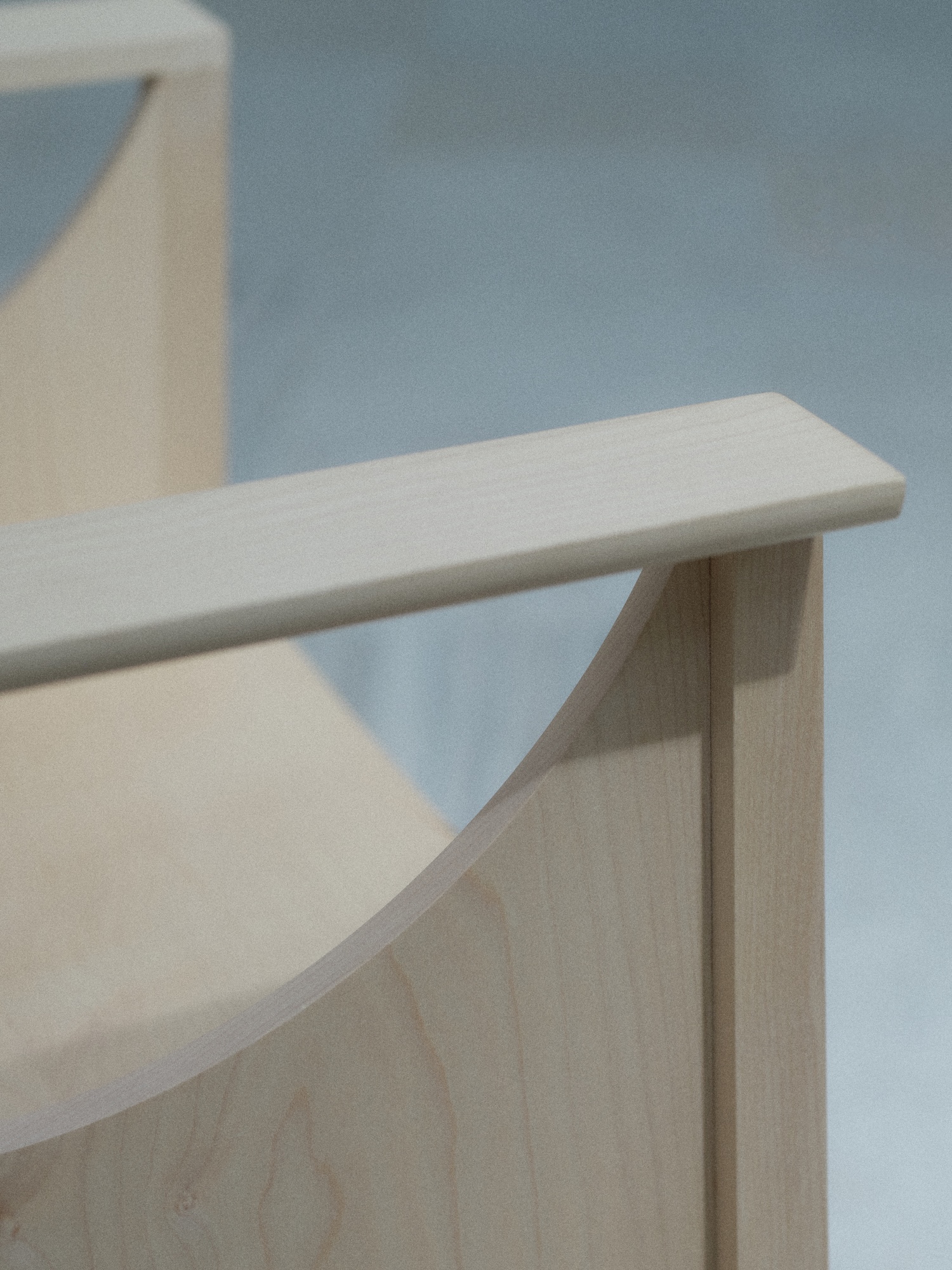Cabana Chair is a minimal chair designed by Maria Jeglinska-Adamczewska for the new design brand GestGest. It begins with a curve—not just any curve, but one born of steam and patience, a gentle arc that seems to cradle the very air around it. This armchair, crafted in solid maple by an anonymous master from Wrocław, speaks to us first through this gesture of welcome. The bend of its backrest isn’t merely a functional choice but a statement of intent: here is furniture that understands the human form, that anticipates your presence before you’ve even approached.
What strikes one immediately is the chair’s remarkable economy of material. The back legs, reduced to their essential minimum—”the thinnest possible thickness,” as the maker describes—perform a delicate balancing act between structural necessity and visual lightness. This is where craft transcends mere technique; the visible dowels connecting the steam-bent backrest to these legs aren’t hidden away as secrets of construction but celebrated as integral to the chair’s visual grammar.
These exposed joinery details recall the honest materiality championed by early 20th century modernists while simultaneously nodding to traditional Eastern woodworking traditions where mechanical connections are elevated to points of beauty. Yet there’s something distinctly contemporary in how this armchair acknowledges its own making, how it renders transparent the very process of its creation.
The solid maple—though other species are available on request—isn’t treated as a neutral substrate but as an active participant in the design. Maple’s tight, uniform grain provides both the structural integrity needed for such minimal dimensions and a canvas for light to play across its subtle variations. One imagines how differently this same form would read in walnut or oak, how the material choice fundamentally alters not just appearance but presence.





